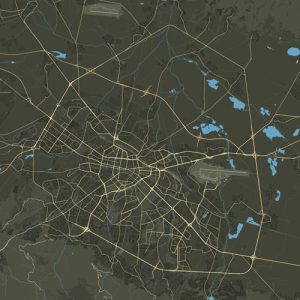In the ensuing years, Bulgaria underwent a series of political and economic reforms, marking its transition towards democracy and a market economy. The duration of this transition period is subject to debate among scholars and analysts.
On November 15, 1990, the VII Great National Assembly changed the state’s name from the People’s Republic of Bulgaria to the Republic of Bulgaria, reflecting a shift away from its communist past.
On December 7, 1989, thirteen non-communist political groups united to form the Union of Democratic Forces (UDS). Zhelio Zhelev was chosen as its leader by the Coordinating Council of the UDS.
Subsequently, on January 3, 1990, the Round Table, a new political body, was established, aiming to facilitate dialogue and cooperation among various political factions.
On January 4, 1990, the Movement for Rights and Freedoms (MRO) was founded, representing the interests of Bulgaria’s ethnic minorities.
The arrest of Todor Zhivkov on January 29, 1990, on charges including abuse of power and embezzlement, marked a significant moment in Bulgaria’s political landscape.
An extraordinary XIV Congress of the Bulgarian Communist Party (BKP) was convened from January 30 to February 2, with a focus on renewing and reforming the party. The congress resulted in the closure of the Politburo and the Central Committee. Alexander Lilov replaced Petar Mladenov as the party leader.
On February 23, 1990, a massive demonstration in Sofia, involving nearly 200,000 protesters, expressed dissatisfaction with the slow progress of the Round Table talks.
Furthermore, Bulgaria’s national holiday was moved back from September 9 to March 3 on February 27, symbolizing a departure from the communist era.
In June, elections were held for the VII Great National Assembly, which were won by the Bulgarian Socialist Party (BSP), sparking discontent among anti-communist forces.
Subsequent student occupation strikes and the creation of a “Truth City” in the capital, along with the setting ablaze of the Party House, demonstrated widespread dissatisfaction with the prevailing political situation.
President Petar Mladenov resigned amidst these developments, paving the way for Zhelio Zhelev to become Bulgaria’s first democratically elected president on August 8, 1990.
On July 12, 1991, the VII Great National Assembly of Bulgaria adopted the Constitution of the Republic of Bulgaria, providing the legal framework for the country’s governance and fundamental rights of its citizens.
During the cabinet of Dimitar Popov, often referred to as “the government of hopes,” from 1990 to 1991, efforts were made towards the liberalization of prices, marking a transition towards a more market-oriented economy.
On May 7, 1992, Bulgaria attained full membership status in the Council of Europe, further integrating into the European political and legal framework.
Bulgaria’s path towards greater international integration continued with its accession to NATO on March 29, 2004, enhancing its security cooperation with other member states of the alliance.
Subsequently, on April 25, 2005, Bulgaria signed the Treaty of Accession to the European Union, signifying its commitment to joining the EU. The treaty was ratified by the XXXIX National Assembly on May 11 of the same year.
Since January 1, 2007, Bulgaria has been a full member of the European Union, gaining access to the EU’s single market and participating in its political institutions.
Additionally, on January 1, 2018, Bulgaria assumed the presidency of the Council of the European Union for a six-month term, providing an opportunity to influence the EU’s policy agenda and priorities during its tenure.

